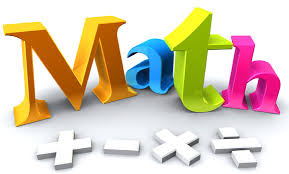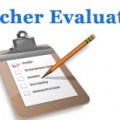
Over the past several weeks, we’ve taken a closer look at the first three domains of the Danielson model for teacher evaluation. This week, we will look at Domain 4, Professional Responsibilities. This domain includes:
• Reflection on Teaching
• Maintaining Accurate Records
• Communicating with Families
• Participating in a Professional Community
Below are three easy-to-implement ideas that will help you continue to grow professionally, while still giving you time to tend to the other aspects of your teaching:
• Improve Your Accuracy.
“As teachers gain experience, their reflections on practice become more accurate, corresponding to the assessments that would be given by an external and unbiased observer … [and they] can provide specific examples from the lesson to support their judgments” (Framework, p. 87).
As mentioned above, some of this accuracy improves with time; the most seasoned teachers tend to have the experience to draw upon to correctly identify and “diagnose” successes and areas that need improvement. These are the teachers who can pinpoint what went right – and wrong – in a lesson, and they also have ideas for improving those items in future lessons and activities.
But how do we ensure that our internal tracking is accurate? Certainly, observations by your principal, supervisors, etc. will naturally open a discussion between what happened in a particular lesson and your assessment of the lesson. But another (less stressful) way to do this is to take part in peer observations. Ask a trusted colleague to team up with you, and the two of you can take turns observing each other’s teaching.
The best part of observing each other is that, because you trust the person, you can be completely honest in your follow-up discussion. In addition, you don’t need to worry about how it affects your “rating” (so you can take a risk while someone watches), and you can also know if your assessment of the lesson matches the other person’s perceptions. Obviously, there is a subjective element to all of this, so there may be some variance in your opinions and the other person’s; however, if you both have a similar opinion of how things went, you can feel confident that your assessment of the lesson is relatively accurate.
But don’t stop with the peer observation: if you notice you did something well – or if there’s an area in need of improvement – decide what you can do to continue to implement the successful strategies and try some alternate ideas for the areas that aren’t up to your standards.
• Paperwork, paperwork…
I’ll admit it – I love having hard copies of my records, from anecdotal notes I’ve written to keeping a grade book on my desk. But with the proliferation of technological tools to assist us, it really is a time-saver to use programs and technologies that consolidate your records to one platform, allowing you to access and work with your records in a variety of ways.
For example, our district uses Real Time, a student information system that is a “single source solution for all district and school administrative needs” (http://www.realitinc.com/).
The first way most of us started utilizing this system years ago was as a grade book: we could record students’ grades in this program, and parents could access their children’s grades via the parent portal. However, this program can do so much more, and by taking advantage of its capabilities, I can ensure that everything is stored in one “place”.
For instance, I can alert parents to homework and upcoming lessons through one feature of the program that shows up on the parent portal when families log on. I can also create seating charts, print out class lists, and submit my lesson plans on Real Time; there is even a section for student notes that I can use when I want to document a behavior issue, the content of a parent/teacher phone call, etc. This feature is perfect in collaborating with colleagues, too since they can access the student notes and add to them, giving all of us a much holistic picture of the student’s progress. With my “old” paper notes, the other teachers might not be aware of the phone calls I’ve made home, or if there was a behavior problem in the classroom.
And for the part of me that still likes hard copies, I simply print out the grades, seating charts, lesson plans, etc. – and then I have them at my fingertips whenever I need them.
• Professional Development for Busy People
“Teachers remain current by taking courses, reading professional literature, and remaining current on the evolution of thinking regarding instruction” (Framework, 103).
It can be difficult: amidst planning lessons, teaching, grading student work, and attending meetings, it can be next to impossible to find time to read professional literature, remain abreast of research and trends in education, and take courses and classes. However, if you set a manageable goal – say, reading one book or taking one course each semester – you stand a much better chance of following trough than if you decide to develop yourself professionally when you have “extra” time – because we all know that time never arrives!
If you’re looking for places to take courses or find excellent books, check out the ASCD website (http://www.ascd.org/Default.aspx). Or, for specific content areas, you can explore subject-specific organizations. For instance, the National Council of Teachers of English (http://www.ncte.org/) posts information related to upcoming conventions, seminars, webinars, etc. for English teachers, while the National Council of Teachers of Mathematics (http://www.nctm.org/) provides a plethora of similar information for math educators.
And don’t forget your school district’s PD offerings, along with local community colleges and universities. Some of them may even offer hybrid courses, where part of the course is “in person” and the other portion is on-line: these virtual options can be appealing to those of you who have family and home commitments that make attending after-school activities difficult.
Hopefully, these ideas have helped you to consider what you already do – and how you can expand your repertoire of ideas and strategies – in your efforts to become the best educator you can be.
So, what do you do that reflects your professionalism?
Please comment below…we’d love to hear from you!






Pingback: Making the Grade with Teacher Evaluation: Domain 4 | Think Educative